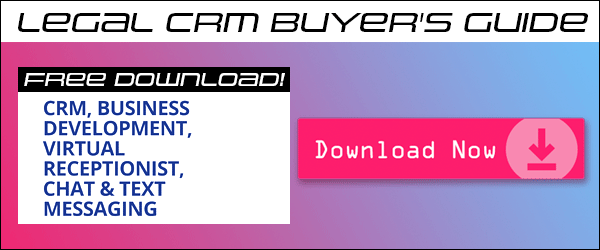There
are
two
tells
that
a
lawyer
did
not
pay
much
attention
in
Con
Law.
The
first?
Not
respecting
the
wide
range
of
issues
affected
by
the
Commerce
Clause.
You
know
what
really
grinds
my
wheat?
Where
exactly
in
the
Constitution
does
it
say
that
a
man
can’t
grow
a
few
extra
stalks
of
chicken
fuel
because
he
doesn’t
want
to
pick
up
a
bag
of
feed
from
the
industrial
strength
PetSmart
down
the
block?!
That
guy
was
growing
crops
for
personal
use
and
he
still
got
clipped
by
a
trade
prohibition
without…
trading?!
Anyway,
the
second
tell
is
when
people
apply
the
First
Amendment
to
private
entities.
Like
Yale.
Conservative
U.S.
Supreme
Court
Justice
Samuel
Alito
called
the
state
of
law
school
free
speech
“abysmal”
during
a speech in
October,
about
a
month
after
two
federal
appeals
court
judges pledged not
to
hire
clerks
from
Yale
Law
School
because
of
student
protests
against
conservative
speakers
there.
In
case
your
memory
is
a
little
fuzzy
from
liking
beer
a
completely
normal
amount,
I
am
happy
to
walk
you
through
how
endemic
pretending
private
institutions
even
having
free
speech
problems
has
been
to
the
year’s
legal
news
cycle.
Yale’s
“Free
Speech”
incident
centered
around
a
bunch
of
Fed
Soc
frat
bros
having
a
totally
not
racist
or
sexist
“Trap
House”
party
involving
fried
chicken
and
“basic
bitch”
ass
snacks
like
apple
pie.
Despite
technically
happening
last
year,
the
shitshow
it
bred
spilled
its
fertile
manure
all
over
the
judiciary,
what
with
Judge
Ho’s
spite
blocking
Yale
law
students
from
clerkships
in
an
attempt
to
own
the
libs.
Yale
isn’t
the
only
one
desperately
needing
to
clean
its
hands
of
this
not-free-speech-no-matter-how-often-you-call-it-that
mess:
The
clashes
over
speech
unfolded
throughout
the
year
and
at
law
campuses
across
the
country.
The
University
of
Pennsylvania
Carey
Law
School
in
January
initiated
an
ongoing
effort
to sanction professor
Amy
Wax
after
years
of
complaints
over
public
and
classroom
comments
many
students
deemed
racist—a
move
Wax
has
said
undermines
her
academic
freedom.
Much
like
Yale
carried
over
from
2021,
Wax’s
racial
horseshit
about
Asians
and
Blacks
is
nothing
new.
It
has
always
been
more
of
a
“no
student
shouldn’t
have
to
sit
and
listen
to,
or
be
subject
to
being
graded
by,
some
professor
who
thinks
that
they
do
not
belong
in
the
country
—
let
alone
the
classroom,”
that
is
to
say
a
pedagogy
thing,
rather
than
a
“Free
Speech”
thing.
It
was
the
same
thing
back
when
law
professors
were
gunning
for
an
excuse
to
drop
slurs
mid
lecture
because
reasons.
2022
is
just
the
year
it
became
too
hard
to
ignore.
Well,
not
that
hard
for
Wax.
She
is
still
the
honored
and
distinguished
Robert
Mundheim
Penn
professor
of
law
after
all.
In
Penn’s
defense,
they
very
clearly
state
that
she
is
a
specialist
in
“issues
of
the
labor
market.”
I
just
wish
they
were
a
little
clearer
in
stating
that
her
involvement
is
accusing
Blacks
of
being
resentful,
shame
riddled
and
envious.
But
surely,
these
are
just
two
anomalous
fact
patterns
wherein
the
school
happens
to
be
a
private
institution
that
isn’t
properly
regulated
by
the
First
Amendment!
It
isn’t
like
all
of
the
attention
grabbing
instances
of
“free
speech”
were
actually
at
private
institutions
where
the
First
Amendment
had
no
actual
purview,
right?
Sorry
to
break
it
to
you.
Once
is
an
accident.
Twice
is
a
trend.
Three
times
is
Georgetown.
Two
weeks
later,
many
students
at
Georgetown
University
Law
Center called for
the
school
to
fire
newly
hired
faculty
member
Ilya
Shapiro,
after
the
conservative
lawyer
tweeted
that
President
Joe
Biden’s
pledge
to
select
a
Black
woman
for
the
Supreme
Court
would
result
in
a
“lesser”
nominee
than
his
preferred
candidate.
Georgetown did
not
fire Shapiro,
but
he declined
the
post following
the
uproar.
Damn
it!
I
hate
to
be
the
one
to
admit
it,
but
a
rare
W
for
fellow
Above
the
Law
editor
Joe
Patrice
is
in
order
—
none
of
this
shit
actually
had
anything
to
do
with
free
speech,
rather
it
was
about
Republicans
wanting
the
right
to
be
confrontational
and
exclusionary
without
facing
consequences
for
it.
The
“free
speech”
controversies
have
even
enticed
Berkeley
Law
dean
Erwin
Chemerinsky
to
throw
his
gauntlet
into
the
fray.
That’s
kind
of
a
big
deal
considering
he
wrote
the
book
on
the
First
Amendment.
And
the
other
ones.
He’s
an
expert
on the
whole
Constitution,
actually.
It
is
fitting
too
—
the
school
he
teaches
at,
University
of
California
Berkeley,
is
actually
a
public
institution.
From
The
New
York
Times:
On
the
first
day
of
the
fall
semester,
Erwin
Chemerinsky,
the
dean
of
the
law
school
at
the
University
of
California,
Berkeley,
learned
that
a
student
group
created
a
bylaw
that
banned
supporters
of
Zionism
from
speaking
at
its
events.
Mr.
Chemerinsky
said
he
rarely
used
profanity
but
did
so
in
that
moment.
As
a
constitutional
law
scholar
and
co-author
of
a
book
about
campus
free
speech,
Mr.
Chemerinsky
said
that
he
knew
the
group,
the
Berkeley
chapter
of
Law
Students
for
Justice
in
Palestine,
had
the
legal
right
to
exclude
speakers
based
on
their
views.
But
he
also
knew
the
bylaw,
which
eight
other
student
groups
also
adopted,
would
be
polarizing
within
the
law
school
and
used
as
a
cudgel
by
forces
outside
of
it.
I
am
generally
not
a
fan
of
blindly
deferring
to
people
in
positions
of
authority,
but
I
make
an
exception
here
because,
and
I
repeat,
he
wrote
the
book
on
this.
More
from
NYT:
“A
student
group
has
the
right
to
choose
the
speakers
they
invite
on
the
basis
of
viewpoint,”
said
Mr.
Chemerinsky,
who
is
Jewish
and
a
Zionist.
“Jewish
law
students
don’t
have
to
invite
a
Holocaust
denier.
Black
students
don’t
have
to
invite
white
supremacists.
If
the
women’s
law
association
is
putting
out
a
program
on
abortion
rights,
they
can
invite
only
those
who
believe
in
abortion
rights.”
Mr.
Chemerinsky
said
that
excluding
speakers
based
on
race,
religion,
sex
or
sexual
orientation
would
not
be
allowed,
but
he
noted
that
the
student
groups
were
excluding
speakers
based
on
viewpoint.
True,
he
said,
many
Jews
view
Zionism
as
integral
to
their
identity,
but
such
deep
passions
do
not
change
the
law.
Thankfully
—
and
I
wish
you
could
feel
the
enthusiasm
and
aggression
I
am
typing
this
with
—
other
people
who
actually
give
a
damn
about
jurisprudence
more
than
Twitter
culture
or
trying
to
get
on
Judge
Ho’s
good
side
have
recognized
that
this
is
properly
an
issue
with
most
of
these
schools
internal
policies
or
the
general
heuristics
for
discussion
we
would
like
to
have
in
academic
spaces,
rather
than
an
issue
of
supreme
law:
Other
legal
experts
noted
that
the
controversy
showed
just
how
mangled
the
understanding
of
the
First
Amendment
had
become,
even
at
a
place
like
Berkeley,
the
epicenter
of
the
1960s
free-speech
movement.
The
debate,
they
said,
should
focus
on
whether
these
bans
align
with
the
academic
ideal
of
open,
intellectual
debate.
Even
if
student
groups
can
prohibit
speakers,
should
they?
And
should
such
bans
be
codified
—
formally
adopted
with
a
bylaw?
In
short,
let’s
get
this
crap
out
of
our
system
before
the
ball
strikes
on
New
Years.
I
really
don’t
see
myself
having
the
bandwidth
for
another
Ilya
Shapiro
situation.
Talking
about
it
on
TV
was
cool
and
all,
but
I
get
enough
attention
from
the
listeners
of
Thinking
Like
A
Lawyer.
If
you
haven’t
been
listening
to
ATL’s
sultry
legal
tones
so
far,
guess
who
just
got
their
New
Year’s
Resolution.
At
Berkeley
Law,
A
Debate
Over
Zionism,
Free
Speech
And
Campus
Ideals
[New
York
Times]
Law
Schools
Faced
A
Free
Speech
Reckoning
In
2022
[Reuters]
Earlier:
Yale
Law
School
Trap
House
Incident
Not
A
Free
Speech
Thing
No
Matter
How
Hard
Folks
Try
James
Ho
Cancel
Cultures
Yale
Law
FedSoc
Because
Other
Students
Are
Mean
To
Yale
Law
FedSoc
Students
Law
School
Seeking
‘Major
Sanction’
Against
Amy
Wax…
Cue
The
Whining
About
Academic
Freedom
Law
Professors
Saying
The
N-Word
Is
Like
A
Damn
Epidemic
At
Emory
Law
School
Lesser
Qualified
Bellyacher
For
Meritocracy
Throws
A
Hissy
Fit
Because
Job
Isn’t
Handed
To
Him
On
A
Silver
Platter
Again,
People
Pointing
Out
That
You’re
Stupid
Is
Not
An
Attack
On
Freedom
Of
Speech
Yale
Law
School
Invites
Boycotting
Judges
To
Campus…
Totally
Not
Cowardly
Desperation
At
All!
 Chris
Chris
Williams
became
a
social
media
manager
and
assistant
editor
for
Above
the
Law
in
June
2021.
Prior
to
joining
the
staff,
he
moonlighted
as
a
minor
Memelord™
in
the
Facebook
group Law
School
Memes
for
Edgy
T14s.
He
endured
Missouri
long
enough
to
graduate
from
Washington
University
in
St.
Louis
School
of
Law.
He
is
a
former
boatbuilder
who
cannot
swim, a
published
author
on
critical
race
theory,
philosophy,
and
humor,
and
has
a
love
for
cycling
that
occasionally
annoys
his
peers.
You
can
reach
him
by
email
at cwilliams@abovethelaw.com and
by
tweet
at @WritesForRent.






 Chris
Chris


 Olga
Olga
 Jordan
Jordan
 Kathryn
Kathryn




